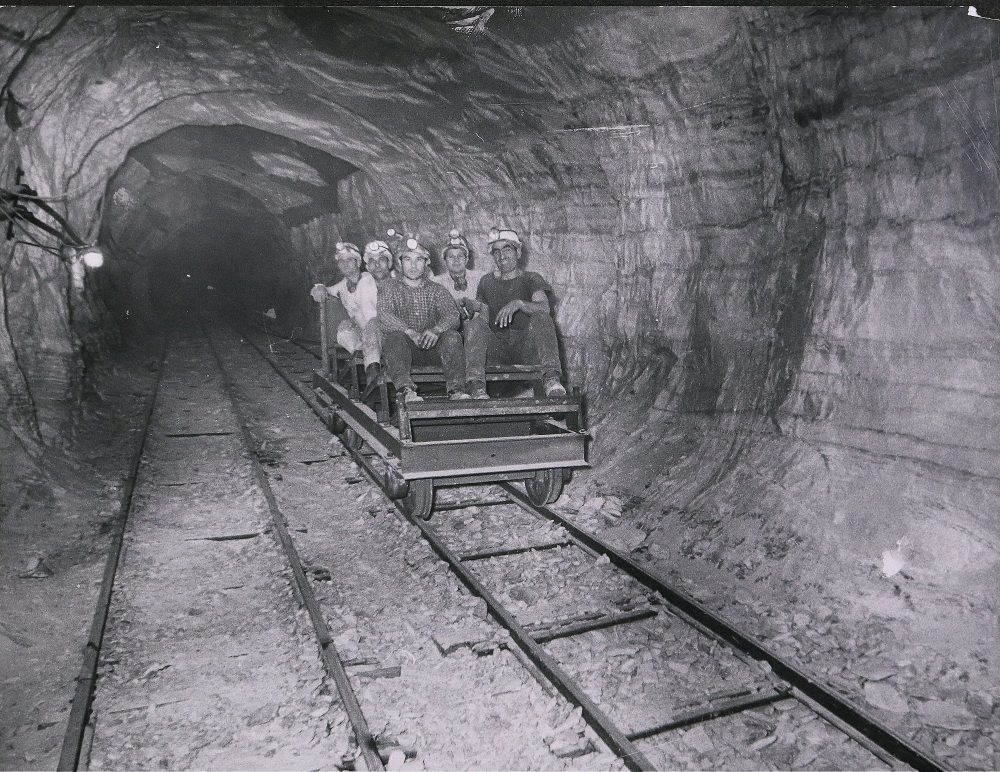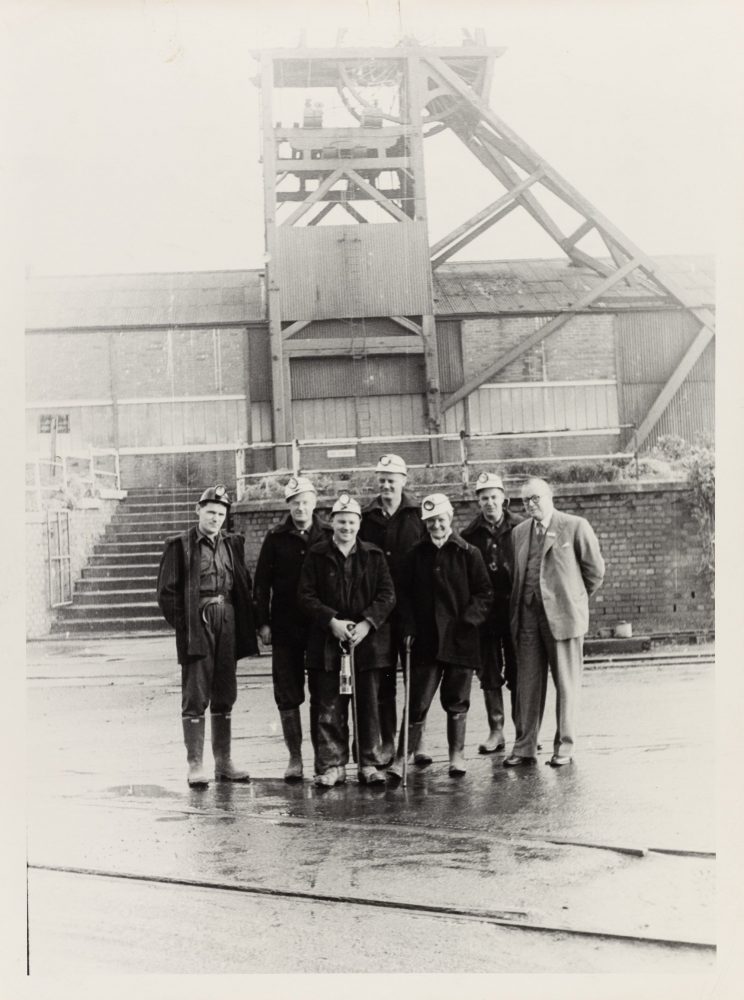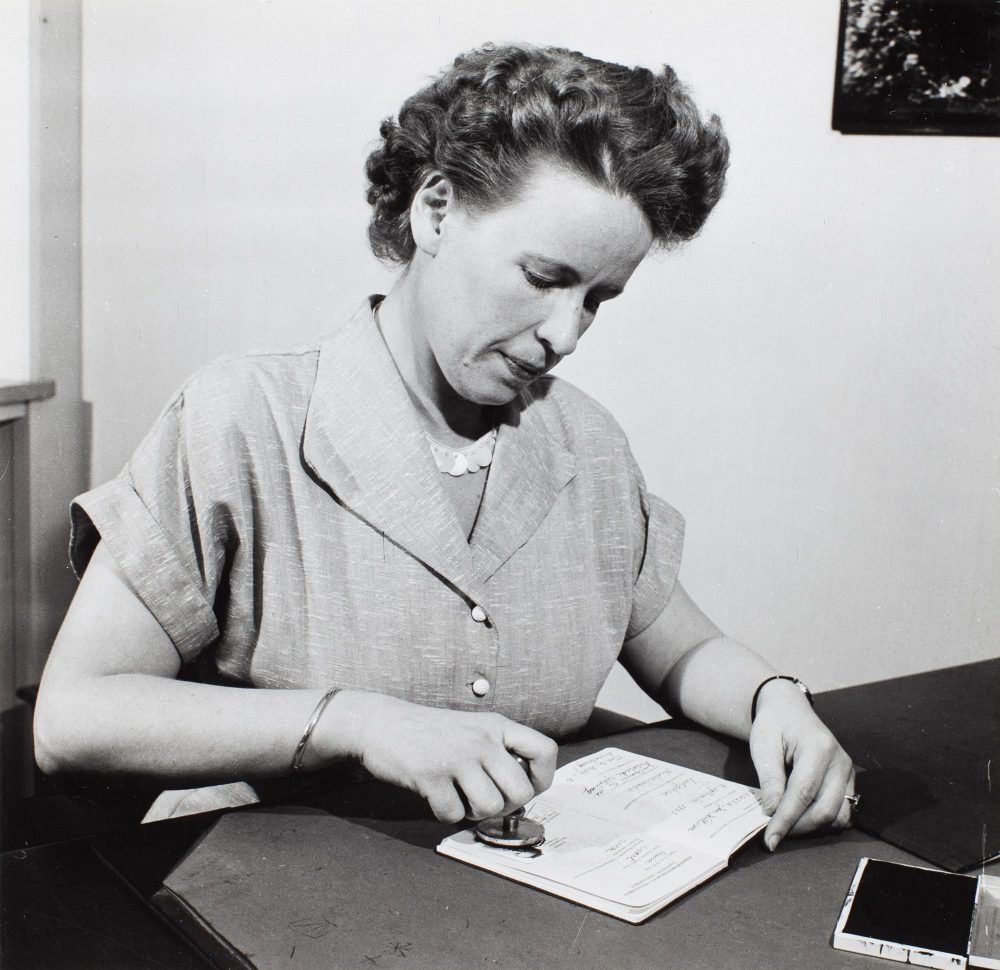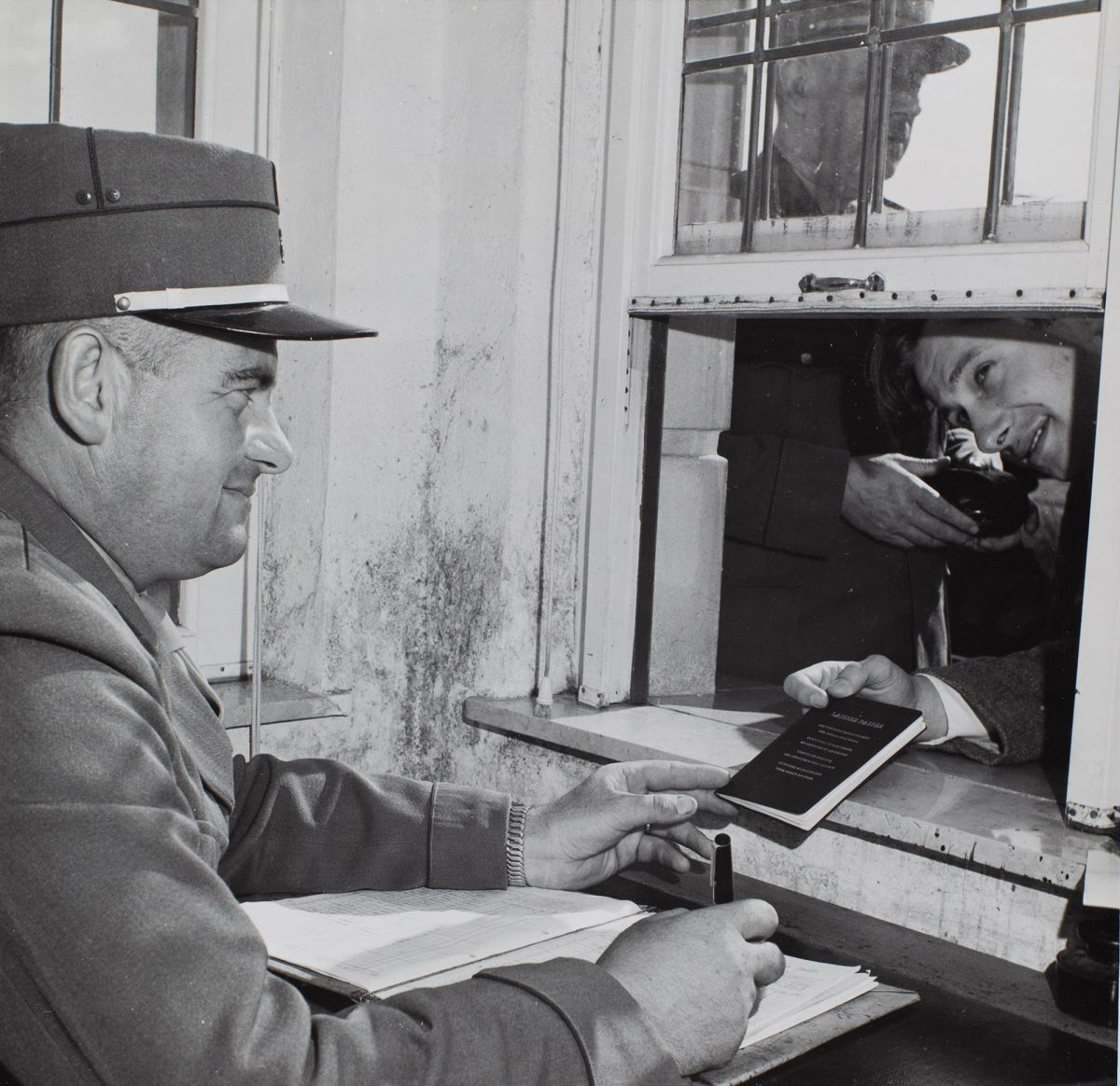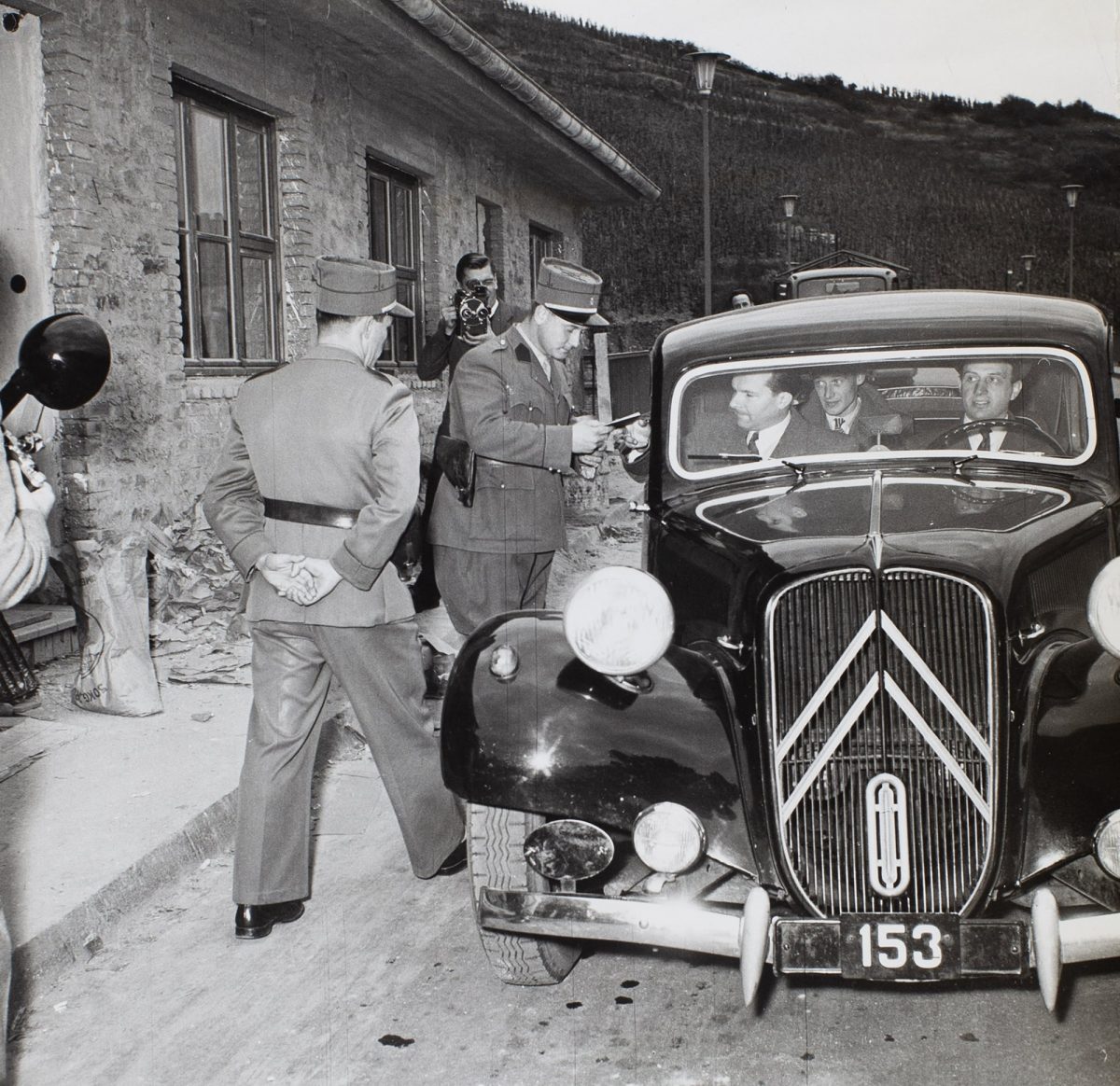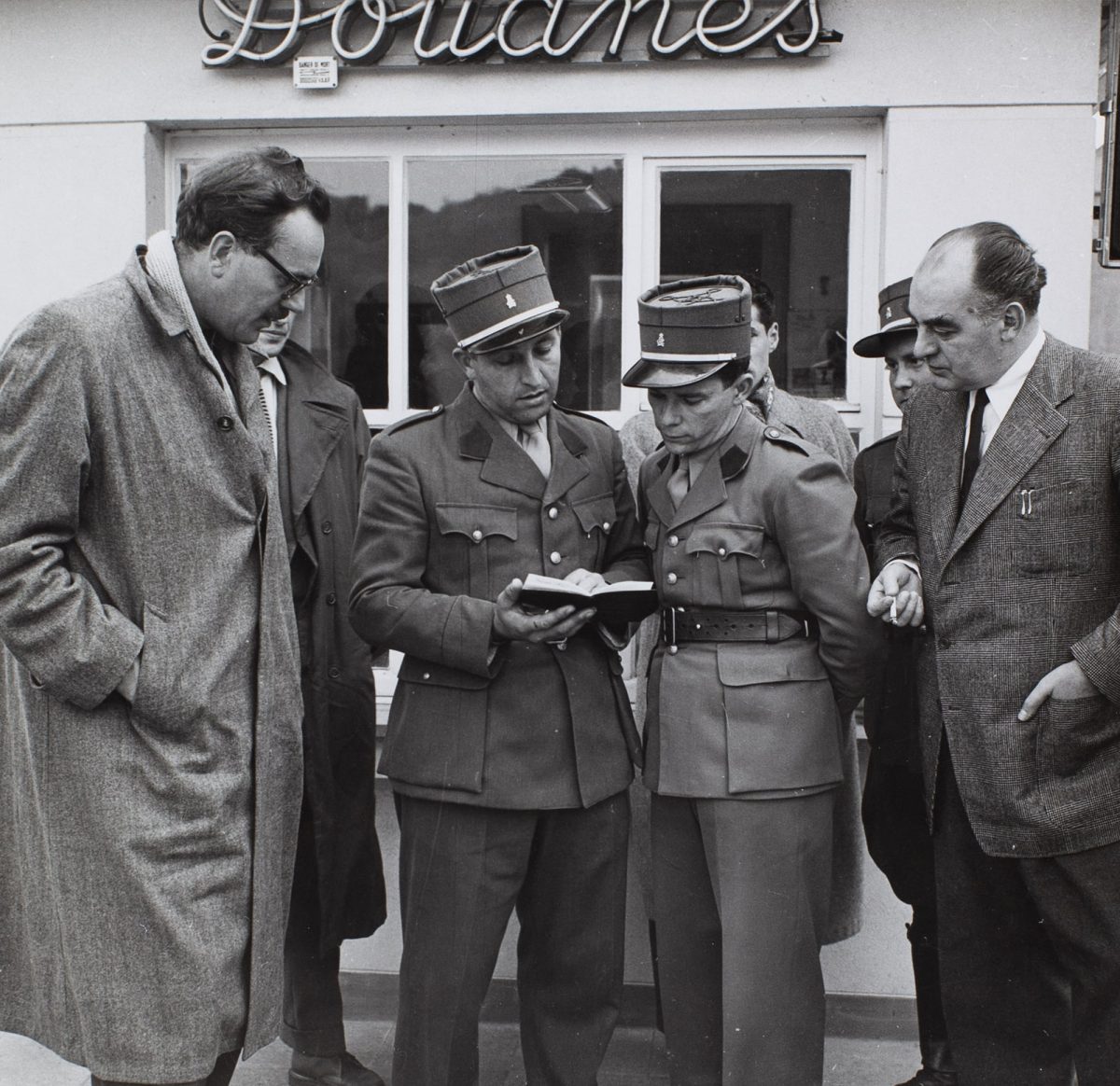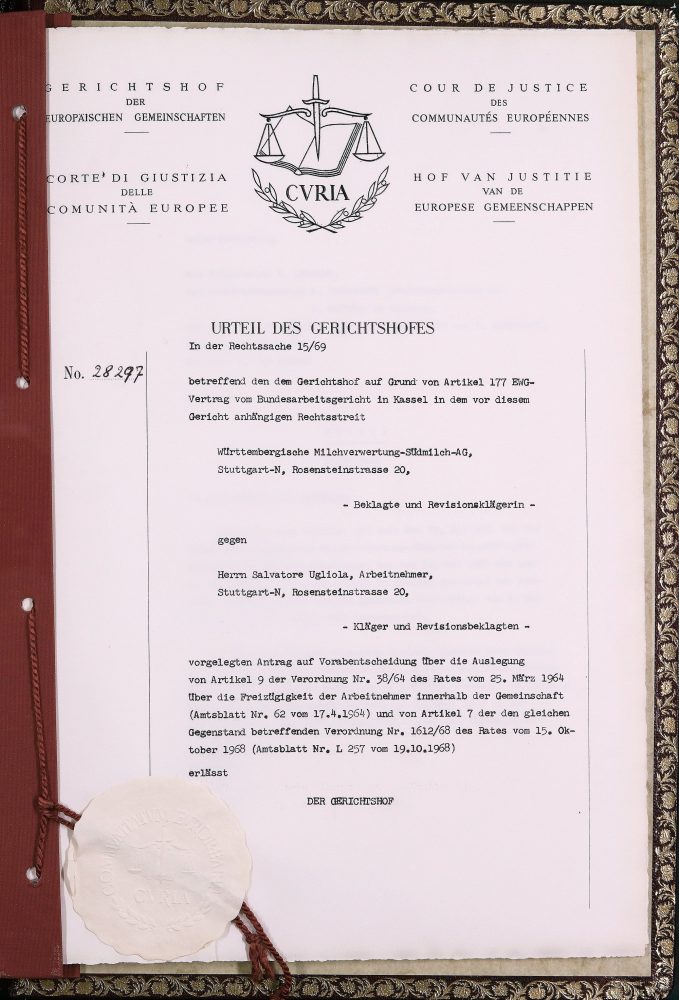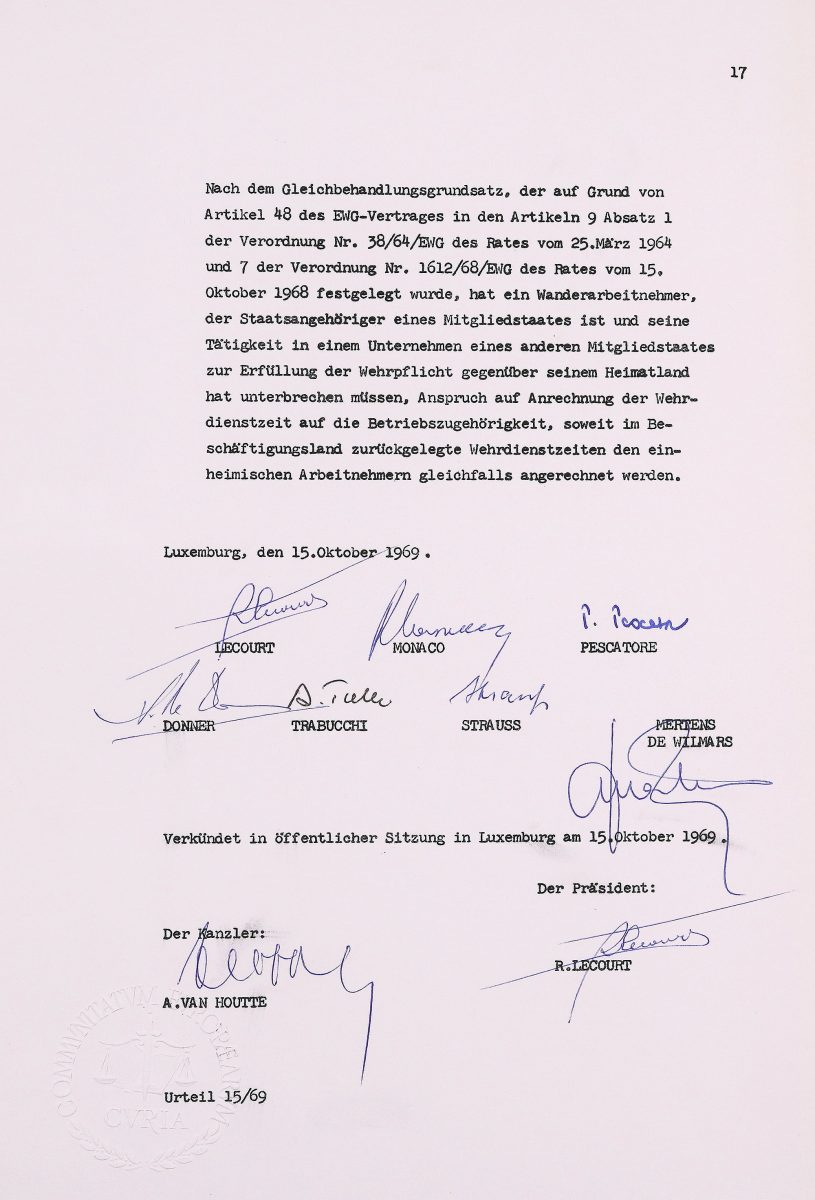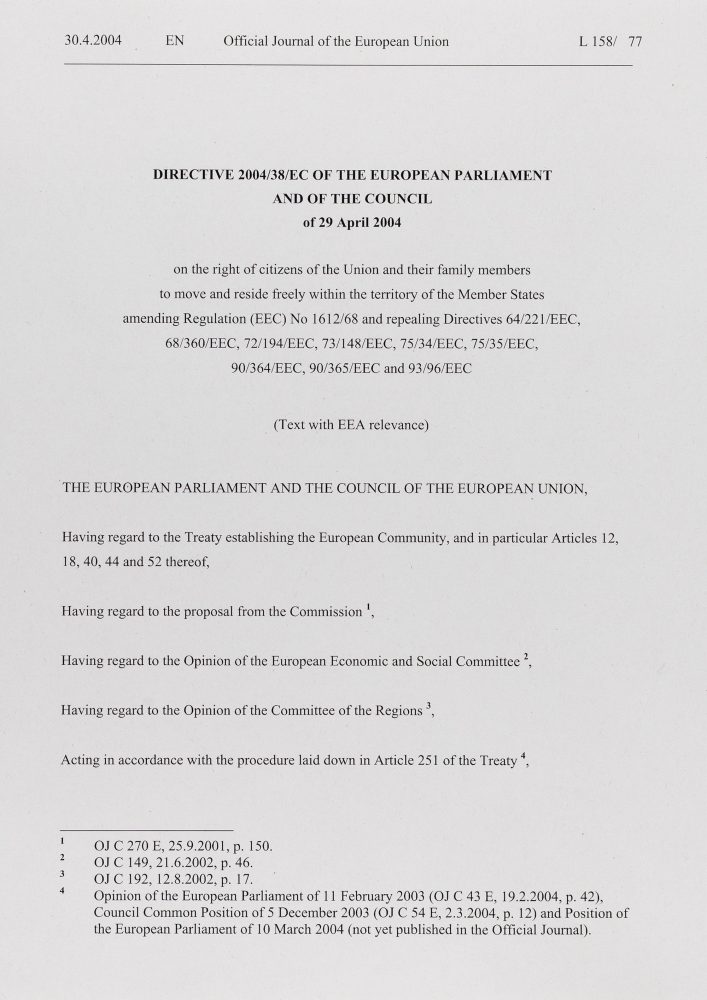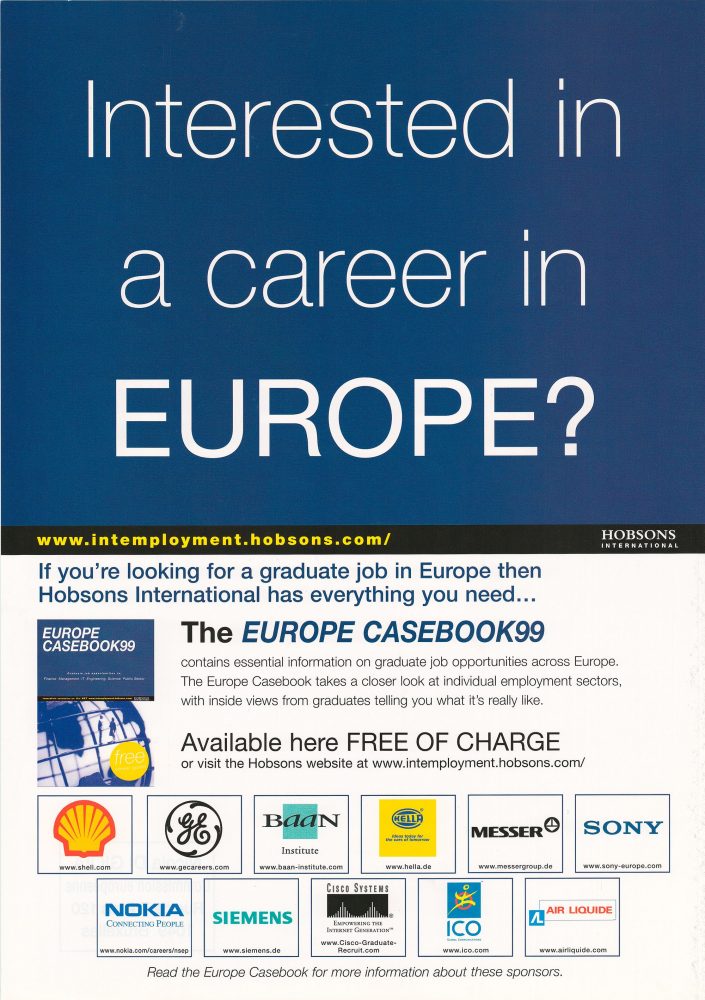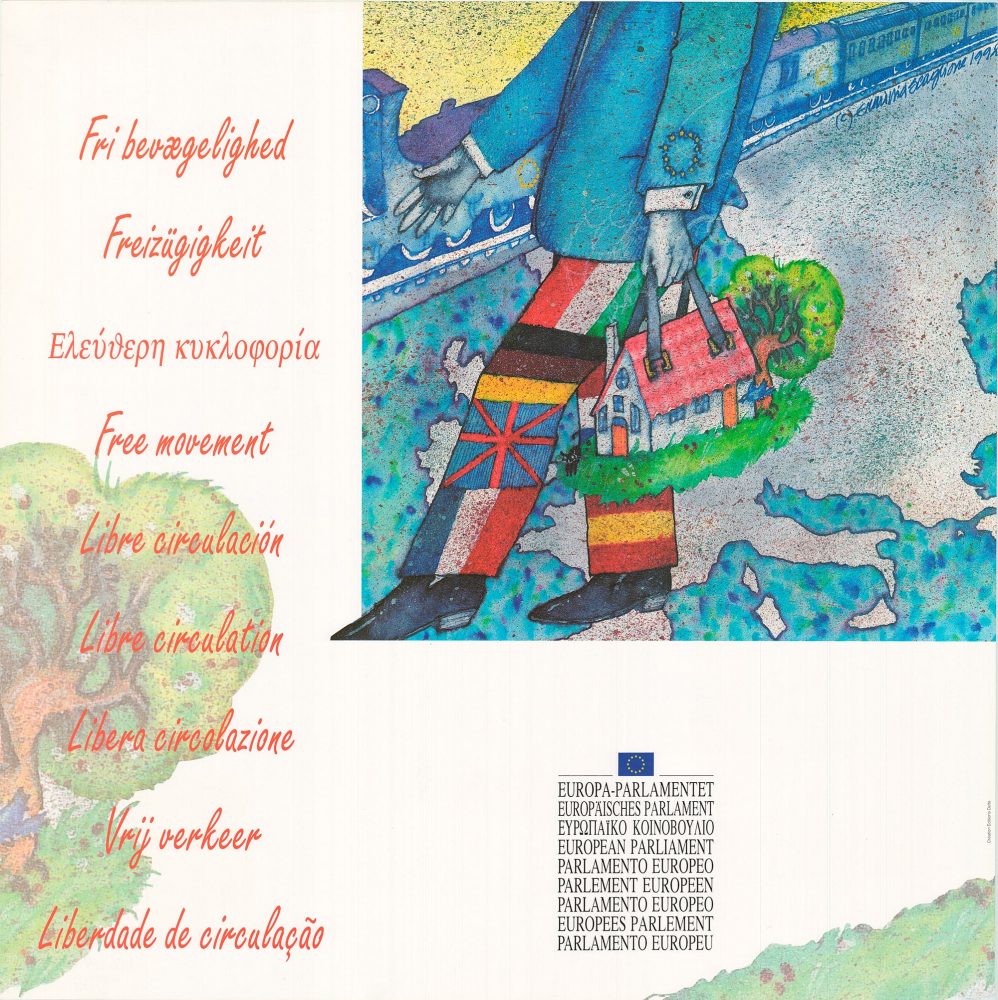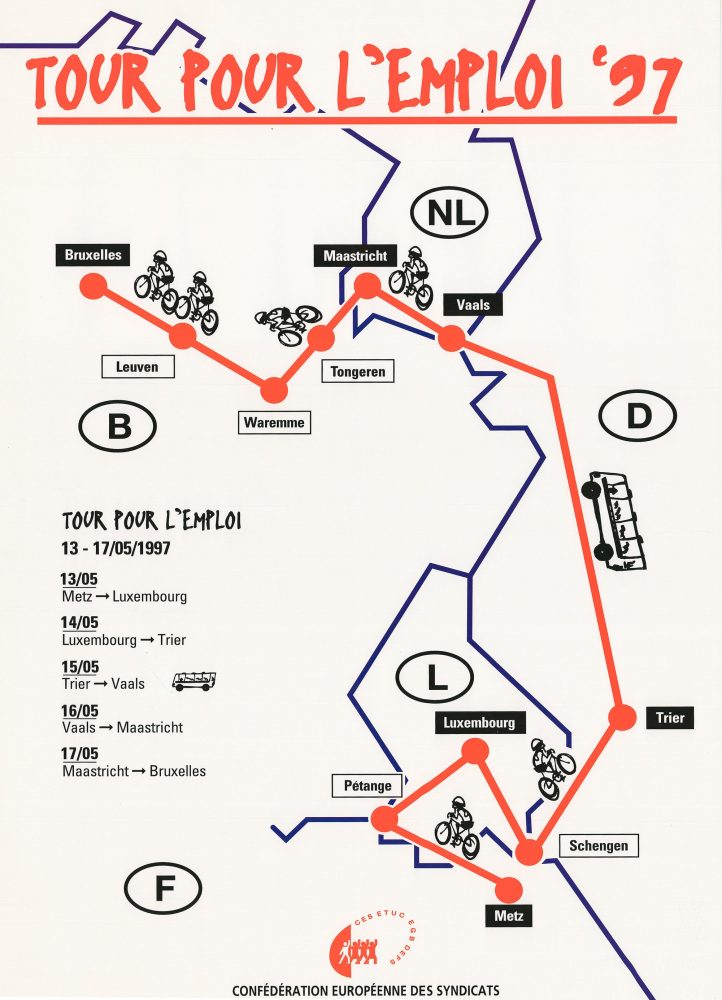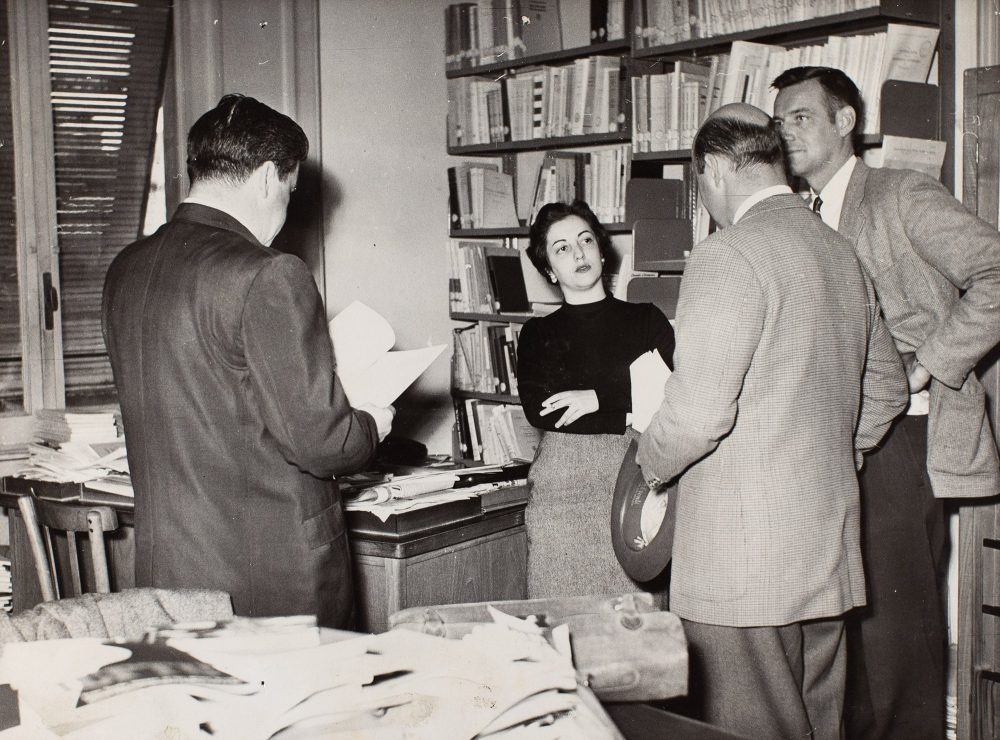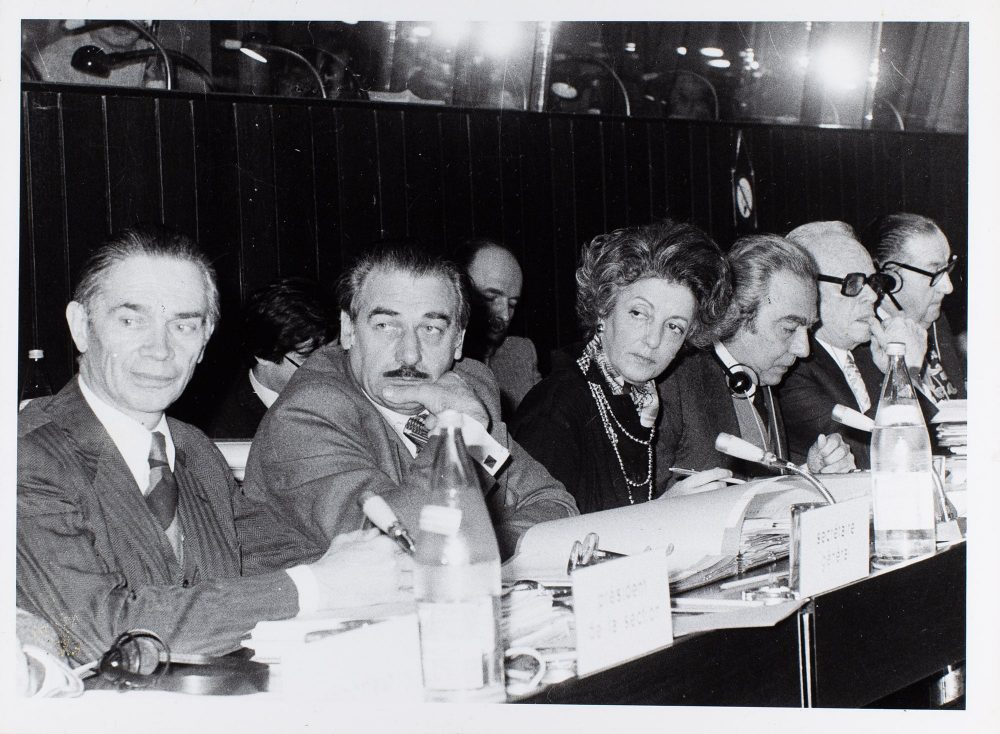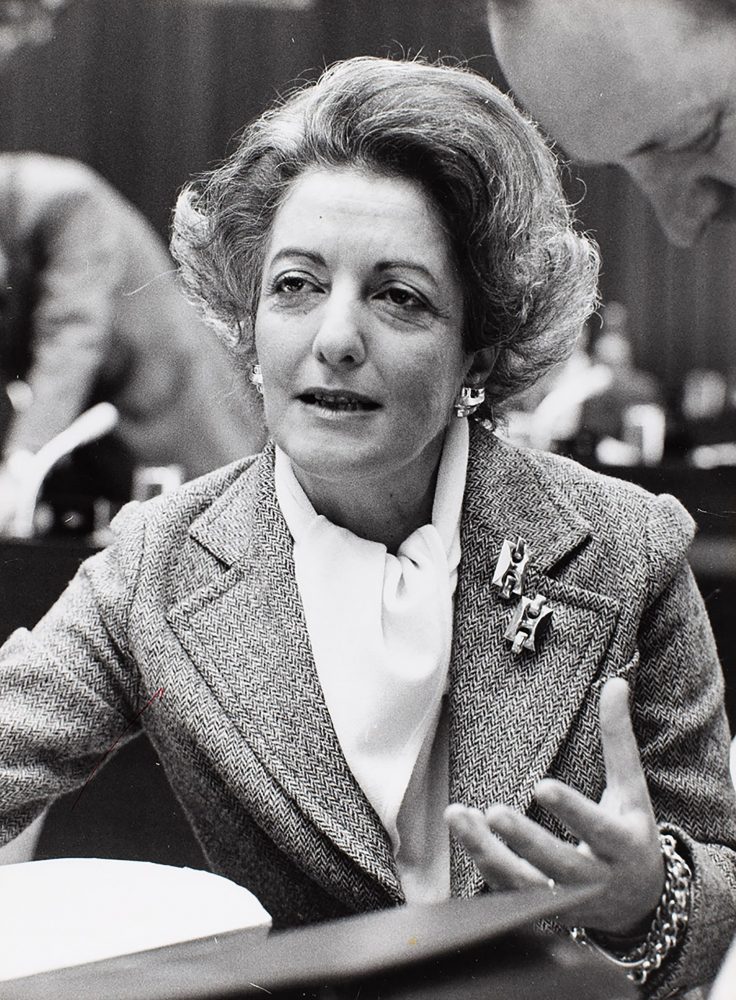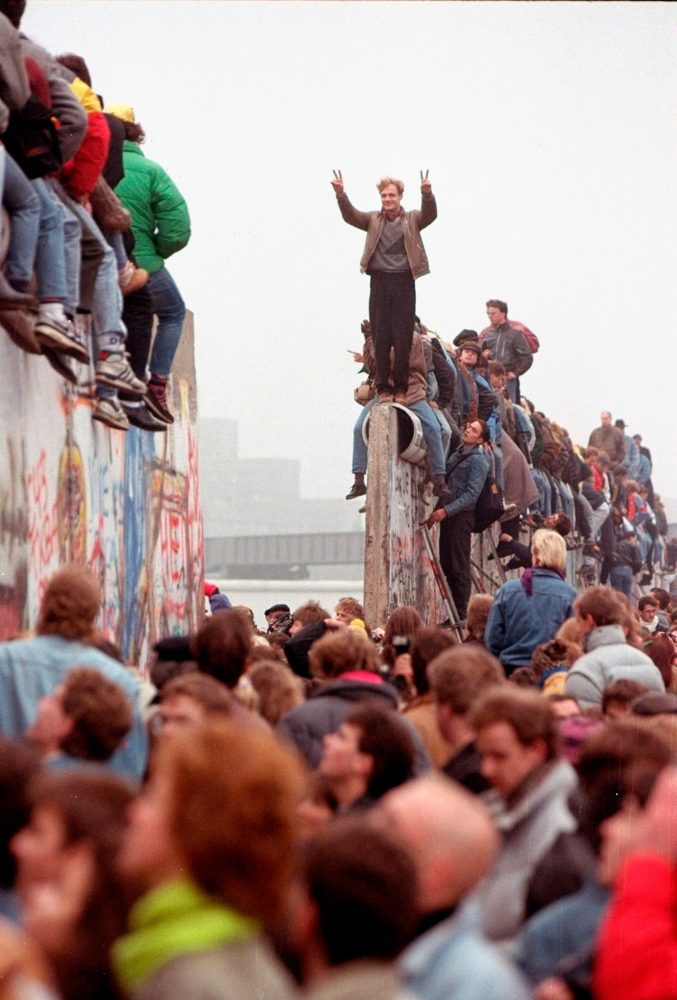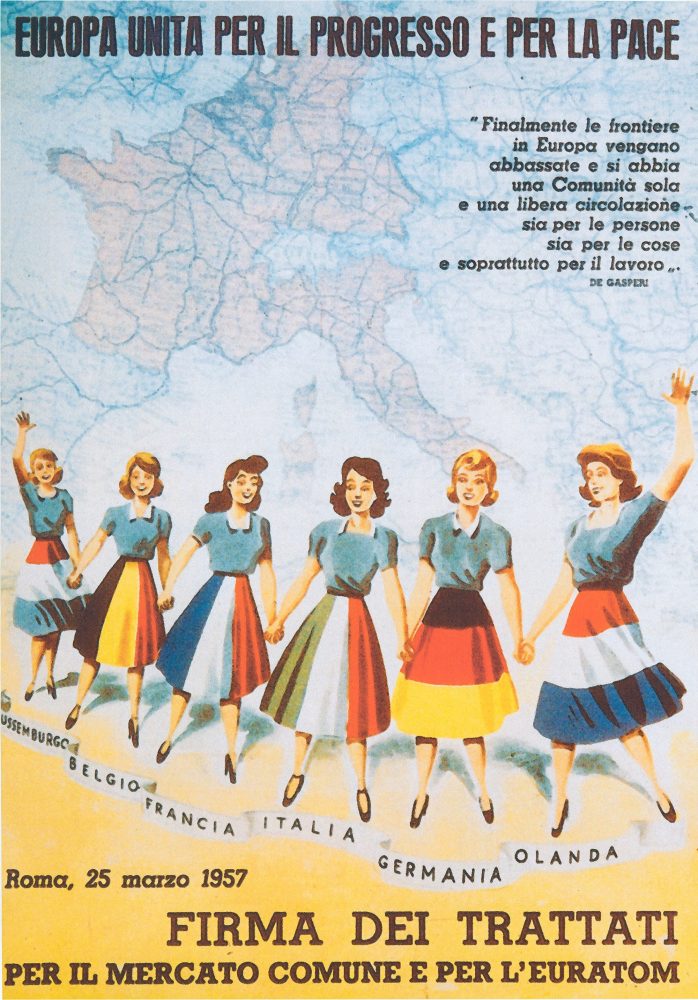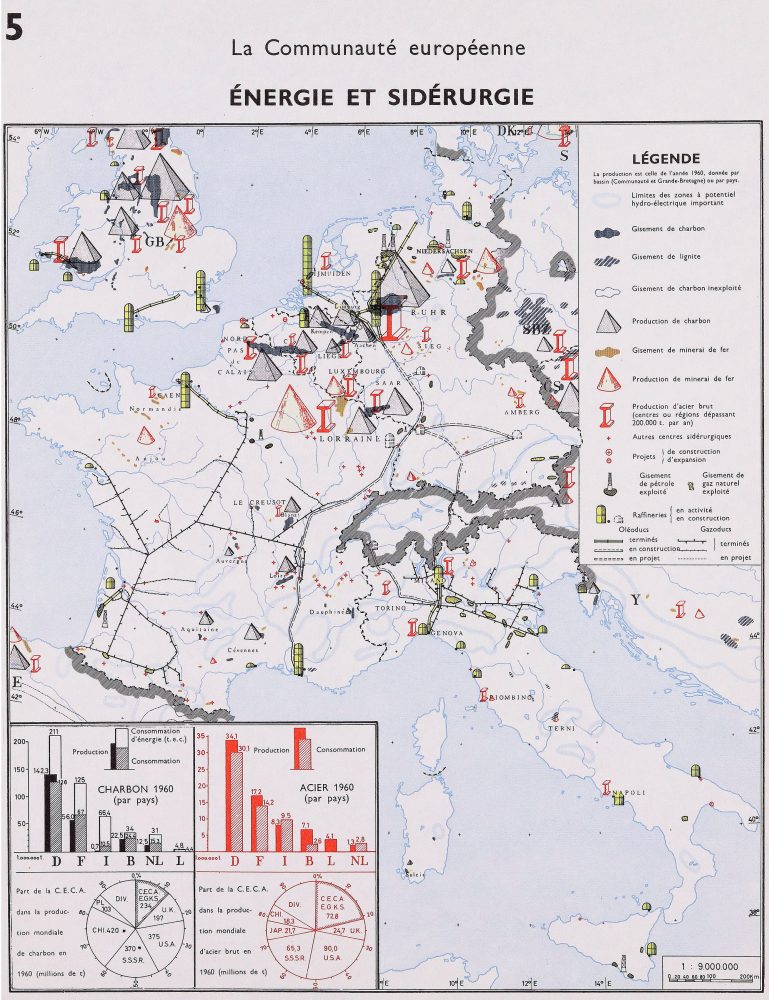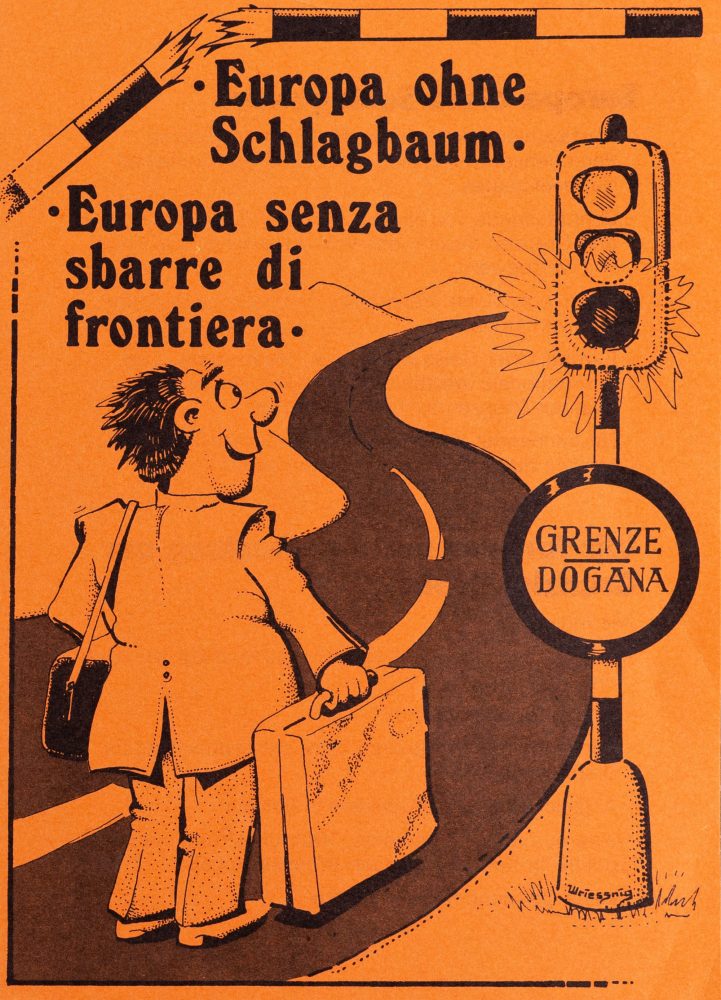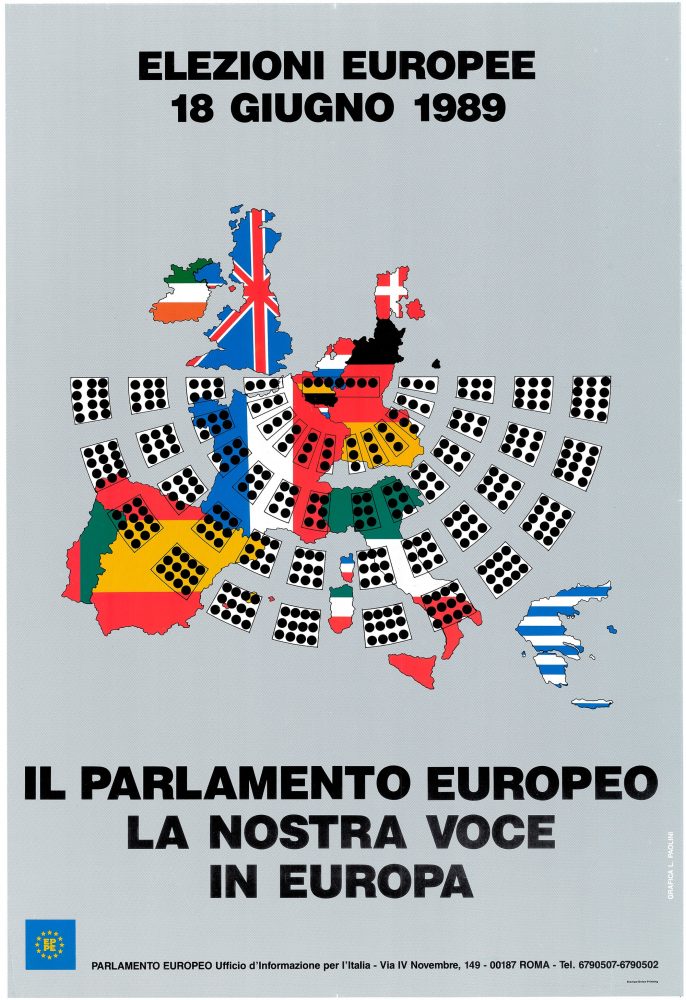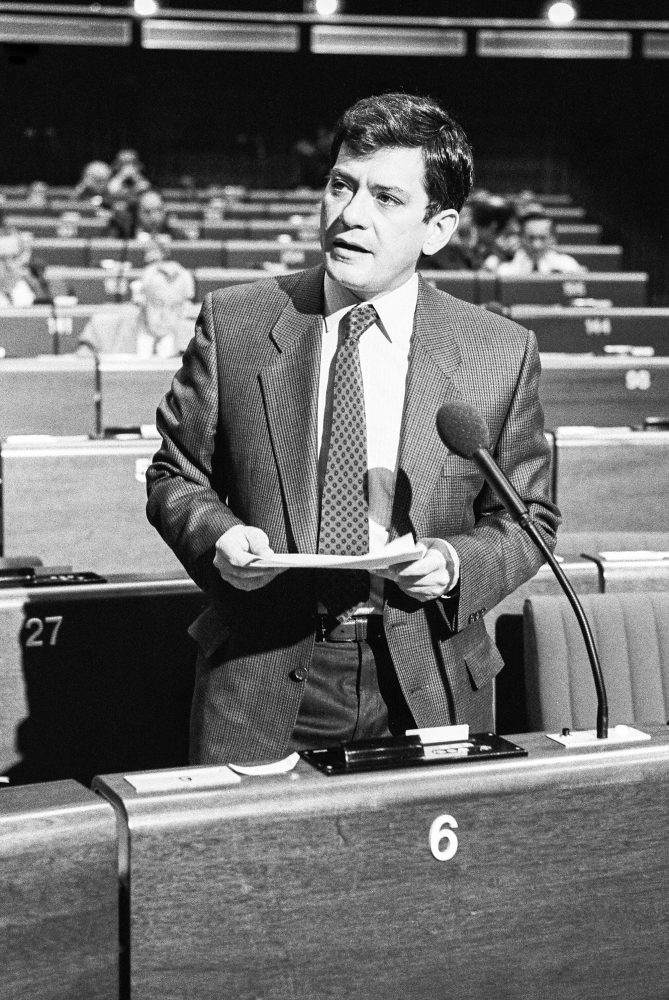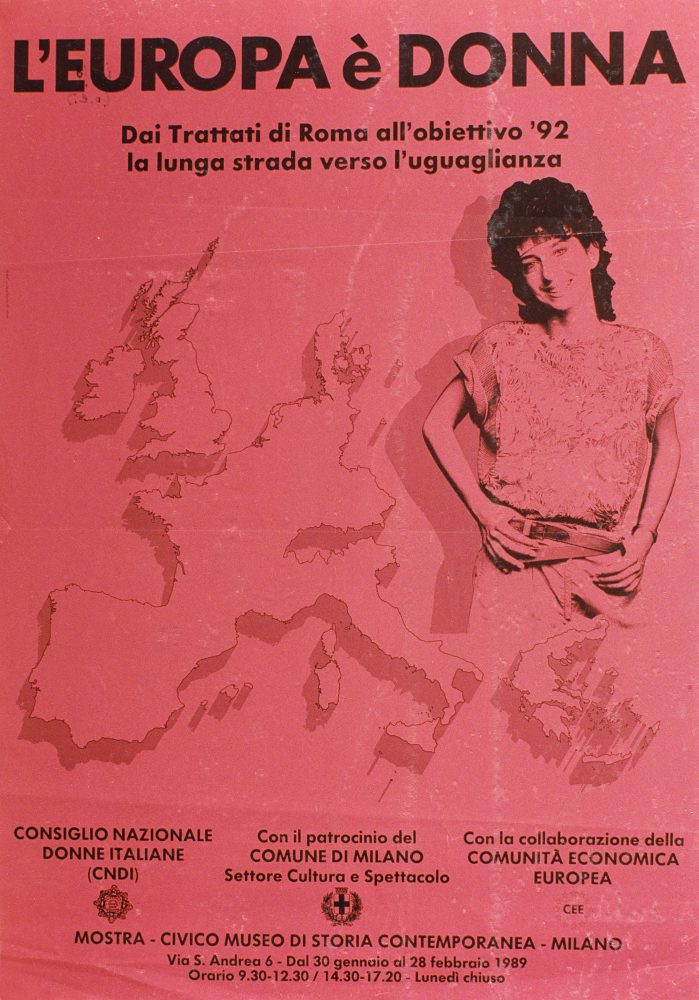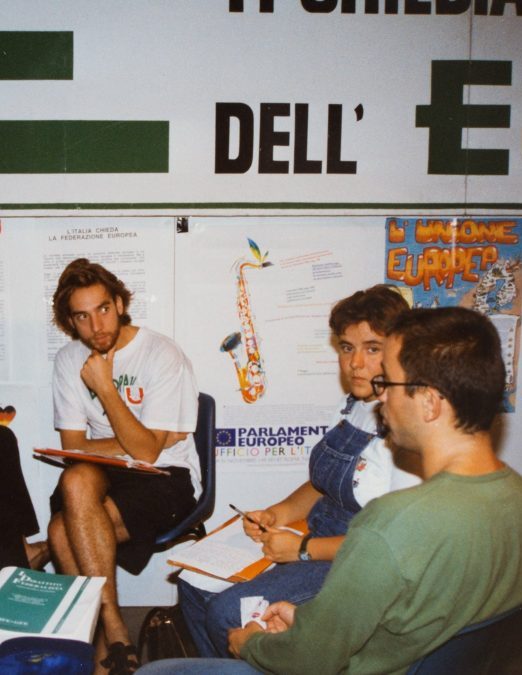Workers
Free movement of workers was a defining principle of European integration, enshrined in the founding Treaties. As a result, EU citizens now enjoy equal treatment with nationals in accessing employment and working conditions. At the same time, the harmonisation of national social policy regimes has been a continuous challenge for European institutions, as Member States have different historical traditions and socio-cultural backgrounds.
Workers and European Identity
Workers’ Rights
The Court of Justice of the European Communities in 1969 deliberated that a migrant worker who interrupted his employment for purposes of military service in his country is entitled to have that period taken into account for calculation of his pension rights.
Jacqueline Nonon (FR)
European Commission official, 1958-1980. HAEU, INT 226
Directive 2004/38/EC of the European Parliament and of the Council recently implemented the right of citizens of the Union and their family members to move and reside freely within the territory of the Member States.
Free movement across Europe
Fabrizia Baduel Glorioso: supporting workers’ rights
Fabrizia Baduel Glorioso (Perugia 1927-2017) was a trade unionist involved in Italian and European associations and institutions. In 1978 she was elected President of the European Economic and Social Committee (EESC), the advisory committee composed of employers, trade unionists and representatives of civil society organizations. She was the first woman to be elected president of an institutional body of the European Communities.
“Western Europe has an impressive cultural heritage, it has the experience and the productive potential of a vast industrialised area […] Western Europe also enjoys the historical culture of a huge workers’ movement.”
Taken from the inaugural speech of Fabrizia Baduel Glorioso to the EESC, 17 October 1978 (translated from Italian)

